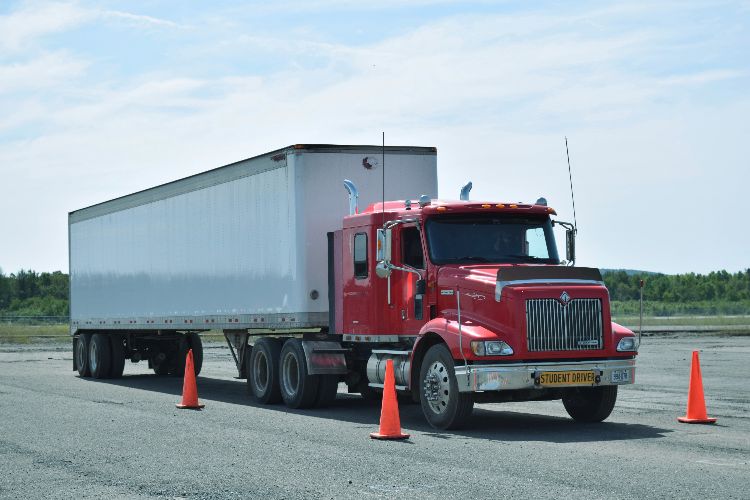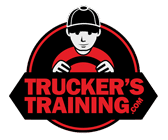Truck driving jobs come with added risks. Not only are there risks related to the driving itself and the hazards of the road but there are many scams out there.
Companies try to skirt their legal responsibilities by looking for “independent contractors” in lieu of employees. They try and avoid all liability and force their drivers to work under otherwise illegal conditions both on the road and off.
As a driver or anyone who knows a driver, it is important to have a clear understanding of what the legal requirements are for truck drivers and how to spot a scam and report them.
There are myriad companies both large and small that provide adequate working conditions and appropriate compensation. Some of the larger companies can be trusted to ensure both, such as MBI or Power Fuels. These larger companies are subject to more oversight which is why they comply with Department of Labor regulations, DOT, IRS, and OSHA guidelines.
Working with reputable companies such as these will enable you to find a better position that adheres to safety standards and not be forced to work with a company that puts you at risk behind the wheel without any extra compensation.
Trucking Industry Scams to Be Aware Of
Illegal and Unsafe Practices
There are many illegitimate companies that hire drivers and subject them to illegal and unsafe working conditions. They will require things such as:
- Running illegal equipment not up to DOT inspection
- Hauling loads beyond the maximum capacity
- Periods of no work
- Working for several days in a row with few or no breaks during said period
- Carrying no insurance to cover drivers
- Housing drivers in unfavorable conditions (if at all)
Hiring Truck Drivers as “Independent Contractors” vs. Employees

The aforementioned are all completely illegal, but companies attempt to get around said conditions by hiring the drivers as “independent contractors”, rather than full time employees.
Trucking Companies Want to Avoid Regulations and Compliance
This negates the companies from regulatory and legal issues, such as compliance with Department of Labor regulations, IRS regulations, DOT regulations, and OSHA regulations that would otherwise limit the maximum profits these companies can achieve through hiring independent contractors.
However, there is a catch for these companies. When tax season comes around, they have to issue a 1099 to the “contractors” and fail to recognize that by definition, letting an independent driver use company equipment, paying for repairs and fuel, and forbidding these drivers from using company equipment with competing companies, they have employees rather than independent contractors.
This means that the treatment (including the aforementioned behavior) is entirely illegal.
Trucking Firms Want to Minimize Liability
Hiring independent contractors also negates the companies from a large bit of liability in the event of a citation, violation, or accident. In these cases, they blame it on the “contractor” and force the driver to take full responsibility or lose their job.
None of this is ethical or legal and therefore it is imperative that all truck drivers in the region familiarize themselves with what makes a good company versus a bad company. This will enable all truck drivers in the area to stand up for themselves and their fellow workers by only working with reputable companies and reporting all non-reputable companies to the proper authorities.
How to Avoid This Scam
Do Your Research
The best way for you to spot a truck driving scam and a bad company is to do some research. You should ask around and find highly recommended companies who are not violating any laws or regulations.
Stay Clear of Trucking Companies That Don’t Follow Legal and Ethical Practices
You should ignore the companies that do not follow through with required hiring protocol. In order for an applicant to be hired as a professional truck driver, they must be able to pass a drug and alcohol test, which will also be given at regular intervals.
Employers must be able to pay fees for motor carrier registration and insurance. This can be quite expensive. Some companies will pay these fees for a driver if they are able to meet all of the other requirements set by the federal government.
All drivers have to pass a controlled substances and alcohol training course. A professional truck driver must pass a thorough background check in all states. Failure to disclose any conviction can result in automatic dismissal or revocation of their license.
All professional truck drivers must possess a CDL license as well as a license to operate a vehicle that contains hazardous materials, which requires a special drivers training course. This training teaches them how to appropriately park a vehicle that contains combustible liquids. In this training, they must learn the appropriate way to handle an accident or a fire while carrying hazardous materials that are combustible.
While all truck drivers attend a truck safety course, and they are trained to check their truck at regular intervals, professional truck drivers must receive additional training. The standards for trucks that carry oil are stricter than for those who carry other, less dangerous materials.
A professional truck driver can lose their license for repeated minor infractions. This is because they carry a dangerous load and the health and safety of dozens, possibly hundreds to thousands of people are in their hands at all times.
Now remember that those who work under a legitimate company will have some level of liability insurance to cover accidents and the like but bad companies looking to scam innocent employees will not have this insurance and will leave the driver out to dry even if the accident was not their fault.
“Free” CDL Training Scams
It’s unfortunate that some trucking companies offer “free” or paid CDL training programs that are completely bogus. Potential employers may promise you low tuition costs or even free tuition but in return you must stay employed at that company for a set amount of time, usually 12 months and sometimes longer.
Here’s where it gets sticky – if you find that you don’t like working there and decide to leave before the agreed upon time of commitment, you will be asked to pay the company back for the training they put you through. And if you don’t cough up the dough, the company can pursue legal action against you!
How to Avoid This Scam
Research, research, research! Before signing anything, research the trucking company offering the free CDL training. Make sure to obtain a copy of the company’s contract and go through it with a fine tooth comb. It wouldn’t hurt to get a second pair of eyes on it as well.
Research the company’s accreditation status and financial obligations associated with the program. Make sure you understand how long you need to stay with the company and the consequences if you leave the company.
Additionally, speak with other drivers who have completed the program in order to get an honest opinion about the quality of training and customer service. Be aware that not all companies are trustworthy, so it is important to proceed with caution when considering CDL training programs. With proper research and due diligence, you can ensure that you’re getting the best possible training for your commercial driver’s license.
Conclusion
Becoming a professional truck driver can be a very rewarding, successful career. It’s also an extremely hazardous career that must be taken seriously and approached with preparedness. Do your research thoroughly and talk to fellow truck drivers who’ve had experience with the trucking companies in question.
Be wary of anything that is free. Usually there’s a catch to getting free or cheap CDL training. But also know that there are other ways to fund your trucking school such as federal and state CDL grants and scholarships if money’s tight, such as WIAO grants, Pell Grant, training grants for those who served in the military.
Don’t skimp on research and be wary of anything that’s too good to be true.

Geoff is a freelance writer at TruckersTraining.com with 20+ years of experience driving trucks and buses, dispatching, supervising, and training commercial driving teams. His expertise is writing topics on the transportation and trucking industry, and information technology trends.



